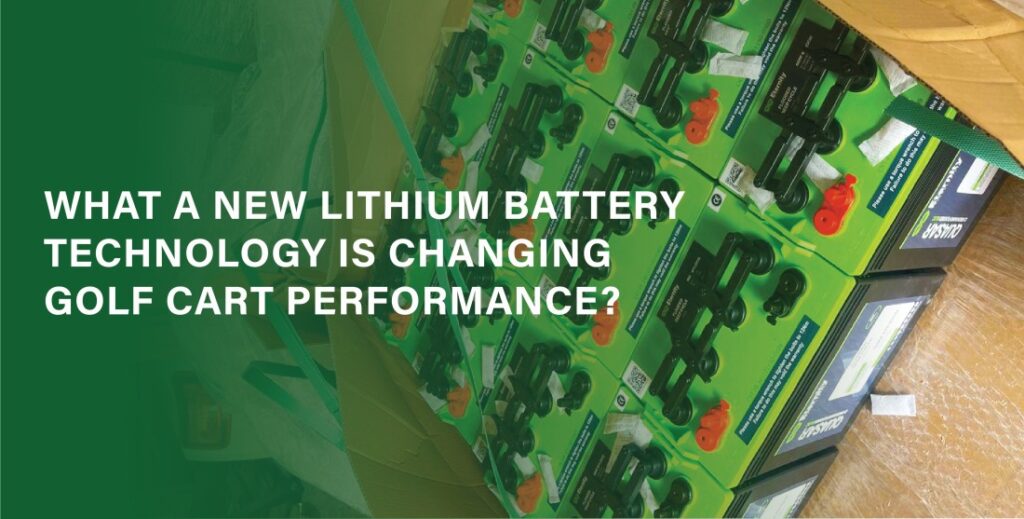The golf cart industry is undergoing a transformative shift as lithium battery technology replaces traditional lead-acid systems. From extended range to reduced maintenance, these advancements are redefining what electric carts can achieve. Here’s how lithium innovation is driving the future of golf cart performance.
Extended Range and Faster Charging
Lithium batteries offer higher energy density, enabling carts to travel longer distances on a single charge. For example, Club Car’s lithium-powered Onward and Carryall models deliver extended operational hours, ideal for large resorts or campuses. Charging times are also drastically reduced—E-Z-GO’s Elite lithium carts recharge twice as fast as lead-acid systems, minimizing downtime. Yamaha’s new LFP-equipped models (4–6 kWh capacity) further emphasize efficiency, consuming 30% less power than previous iterations.
Enhanced Performance and Reliability
Lithium batteries provide consistent voltage output, ensuring steady acceleration and hill-climbing power even as charge levels drop. This translates to smoother rides and reliable performance across terrains. Yamaha’s high-precision AC motor and regenerative braking system amplify this effect, optimizing torque and speed control. Additionally, lithium’s lightweight design (up to two-thirds lighter than lead-acid) improves maneuverability and energy efficiency, allowing carts to achieve higher speeds more effortlessly.
Lower Maintenance and Costs
Unlike lead-acid batteries, lithium systems require no watering, terminal cleaning, or regular upkeep. E-Z-GO’s Elite technology, backed by Samsung SDI cells, eliminates maintenance entirely, while Club Car’s lithium models reduce long-term operational
expenses. The 8-year battery warranty offered by E-Z-GO underscores the reliability of these systems, significantly cutting replacement costs.
Environmental and Operational Benefits
Lithium batteries are eco-friendly, producing zero emissions and containing no toxic lead. Their longer lifespan (up to 10 years) reduces waste compared to lead-acid’s 3–5-year cycle. The weight reduction also minimizes turf damage, a critical factor for golf courses. For commercial settings like airports or resorts, lithium-powered carts ensure all-day uptime with minimal energy consumption.
Future-Ready Innovations
Manufacturers are integrating advanced Battery Management Systems (BMS) to monitor performance, temperature, and charge states. E-Z-GO’s proprietary BMS communicates with the motor, brakes, and charger to optimize efficiency. Meanwhile, Yamaha’s in-house LFP development highlights a push toward thermal stability and safety. Emerging options like 48V 200Ah lithium packs further enhance range and power density for industrial applications.
Conclusion
Lithium battery technology is not just an upgrade—it’s a revolution. With unmatched efficiency, durability, and environmental benefits, lithium-powered golf carts are setting new standards across recreational, commercial, and industrial sectors. As brands like Club Car, E-Z-GO, and Yamaha continue to innovate, the future of electric golf carts for sale is brighter, lighter, and faster than ever.
